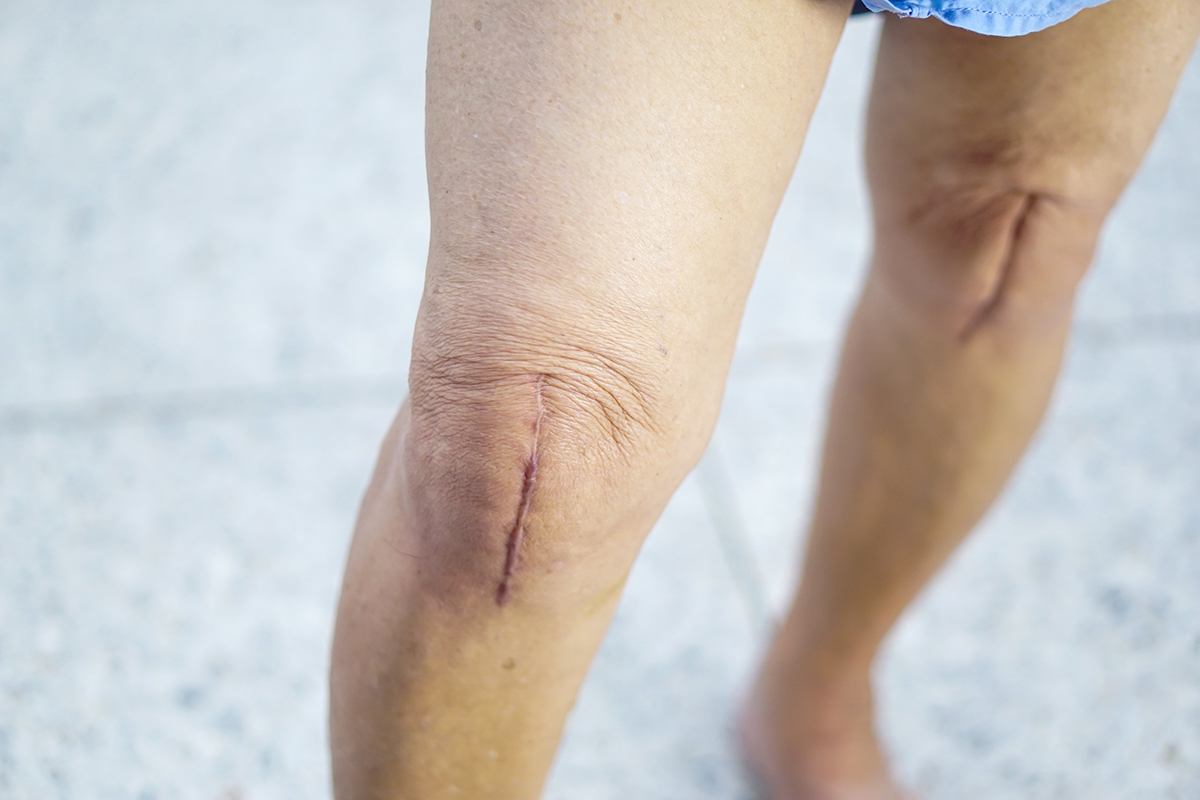Total Knee Replacement surgery (TKR) is a routine operation that involves replacing a damaged, worn or diseased knee with an artificial joint. Knee replacement surgery is usually necessary when your mobility is reduced and you experience pain even while resting. Adults of any age can be considered for a knee replacement, although most are carried out on people between the ages of 60 and 80.
The most common reason for knee replacement surgery is osteoarthritis although other conditions may alsocause knee damage, pain and functional problems. A knee replacement is major surgery, so is normally only recommended if other treatments, such as physiotherapy or steroid injections, haven’t helped reduce pain or improve mobility.
Before you go into hospital, find out as much as you can about what’s involved in your operation. Your hospital should provide written information or videos.
Stay as active as you can. Strengthening the muscles around your knee will aid your recovery. If you can, continue to take gentle exercise, such as walking and swimming, in the weeks and months before your operation. You can be referred to a physiotherapist, who will give you helpful exercises.
Read about preparing for surgery, including information on travel arrangements, what to bring with you and attending a pre-operative assessment.
You’ll usually be in hospital for three to five days, but recovery times can vary depending on the individual and type of surgery being carried out.
Once you’re able to be discharged, your hospital will give you advice about looking after your knee at home.
You’ll need to use a frame or crutches at first and a physiotherapist will teach you exercises to help strengthen your knee.
Most people can stop using walking aids around six weeks after surgery, and start driving after about eight to 12 weeks.
Full recovery can take up to two years as scar tissue heals and your muscles are restored by exercise. A very small amount of people will continue to experience some pain after two years.
Knee replacement surgery is a common operation and most people don’t experience complications. However, as with any operation, there are risks as well as benefits. At Athens BJR Center we follow the
UK GMC (General Medical Council) Guidelines on discussing the risks and complications of any proposed intervention. All related risks are explained and discussed thoroughly on an individualized bases during the preoperative consultation of the patient.
Complications with TKR are rare but can include:
- stiffness of the knee
- infection of the wound
- deep infection of the joint replacement, needing further surgery
- unexpected bleeding into the knee joint
- ligament, artery or nerve damage in the area around the knee joint
- blood clots or deep vein thrombosis (DVT)
- persistent pain the in the knee
- fracture – a break in the bone around the knee replacement during or after the operation
- In some cases, the new knee joint may not be completely stable and further surgery may be needed to correct it.

